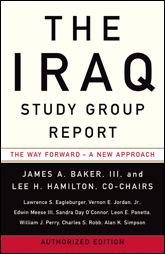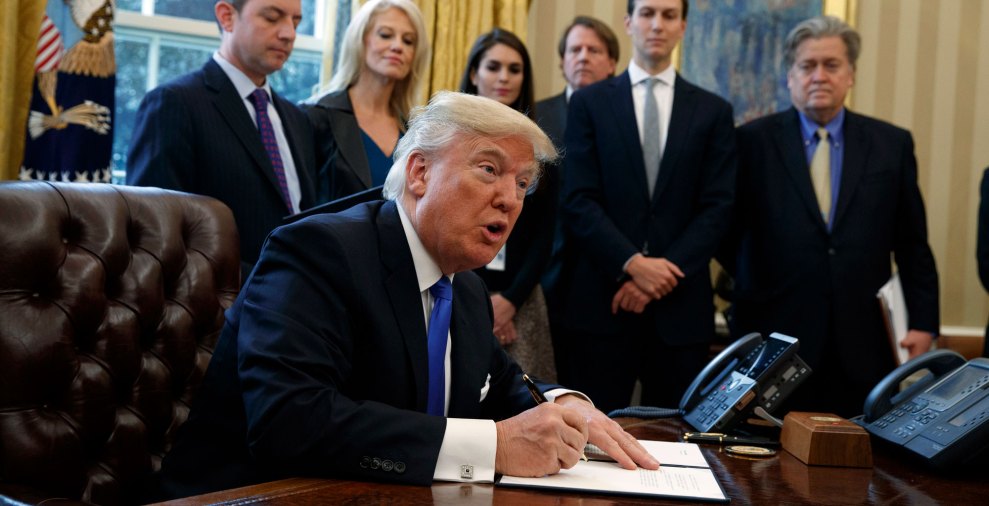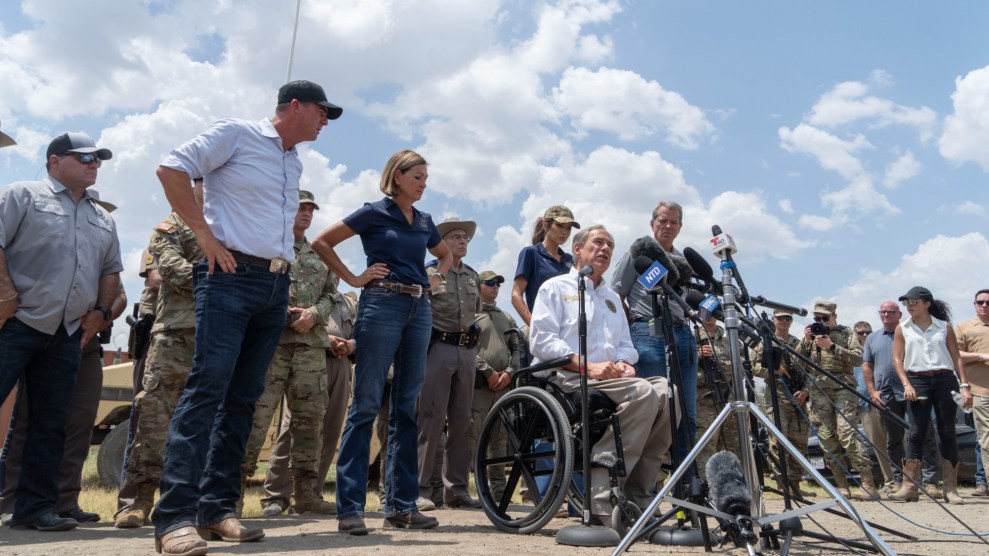
The bottom line in this morning’s release of the much anticipated Iraq Study Group report is a new emphasis on embedded special operations and combat teams within the Iraqi military, allowing a drawdown of troops in the region. Under this model, intelligence and logistical support would likely continue to come from the United States; since Iraq has no air force, the U.S. would probably fill that gap as well.
The report, which notes that “the situation in Iraq is grave and deteriorating,” says that U.S. military operations in Iraq “should evolve” so that “by the first quarter of 2008… all combat brigades not necessary for force protection should be out of Iraq. At that time, U.S. combat forces in Iraq could be deployed only in units embedded with Iraqi forces, in rapid-reaction and special operations teams, and in training, equipping, advising, force protection and search and rescue.” Such irregulars played a key role in Afghanistan; Robert Gates, who seems likely to be headed for confirmation as Secretary of Defense, has an extensive background with irregular warfare and covert actions, almost ensuring the elevation of special operations within the overall military structure.
The study group’s report also addresses the question of oil, which will almost certainly play a large role in the unfolding diplomacy in the region, but especially in Iraq and Iran, where American companies have long sought access. Improving relations with Iran, as the study group advocates, could open the way for trade with the U.S. and possibly access to pipelines transporting oil — and especially natural gas — from central Asia. In Iraq, much of the discussion in recent months has focused on economic, if not political, division of the country, and on potentially divvying up oil revenues to Shia, Sunni, and Kurd territories, with each group cutting its own deals with the big oil companies. But the study group’s recommendations run counter to this thinking, and it advocates a strong central government: “The United States should support as much as possible central control by governmental authorities in Baghdad, particularly on the question of oil revenues.” Overall, the study group proposes reorganizing the oil industry as a “commercial enterprise.”
When it comes to Iran, the Study Group opts to hand over the issue to the United Nations and to a new Iraq Support Group that would be comprised of states in the region “including Iran and Syria” as well as Egypt and the Gulf states, plus the European Union, the five permanent members of the UN Security Council, and other countries, such as Germany, Japan, or South Korea, “that might be willing to contribute to resolving political, diplomatic, and security problems affecting Iraq.”
The current Bush policy is to menace Iran with strict trade sanctions if it persists in its nuclear ambitions — sanctions that could include cutting off oil shipments to places like Italy and Japan, both of which use a lot of Iranian oil. In practice, such sanctions probably wouldn’t work — it’s hard to see the US threatening the energy base of Japan in any serious way, for example, and enforcing them almost certainly would risk military conflict in the Persian Gulf. Against that backdrop, the Study Group doesn’t abandon the idea of a get-tough policy with Iran, but for the immediate future, it proposes a new emphasis on negotiations.
In yesterday’s questioning of Robert Gates, Democratic Senator Robert Byrd asked the Secretary of Defense designate if he would favor attacking Iran and/or Syria. Gates said no. A little while later, Republican Senator Lindsay Graham asked Gates for his views on Iran’s nuclear ambitions, specifically whether gaining nuclear arms would make Iran into a threat to the region and beyond. Gates replied that he thought Iran was anxious to acquire nuclear arms as a “deterrent,” and not for offensive purposes. If Gates sticks to this line, it signals further willingness of the Bush Administration to stand down from its previous threatening stance toward Tehran.















